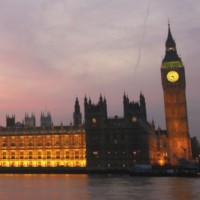
Since last Friday, the pound has tumbled, a multitude of mortgage products have been pulled, the IMF and Moody’s have issued warnings and the Bank of England (BoE) has launched a bond buying programme. Few in the market have known a week like this since the dark days of 2008 or, further back, to Black Wednesday.
As lenders, brokers and customers feel the strain, many in the industry are wondering what will happen next and how both the BoE and the government can remedy the situation.
Banking on the central bank
Although the BoE has intervened by purchasing UK government bonds, there are those who believe that more measures need to follow – with some advocating for rate rises.
Lewis Shaw, founder and mortgage expert at Shaw Financial Services, said: “The BoE has to step in, raise rates and sure up confidence in markets. Day after day, we’re looking more and more like an emerging markets economy.”
Others feel that those rate rises are inevitable.
Graham Cox, Director at SelfEmployedMortgageHub.com, added: “Earlier in the week, Huw Pill, the chief economist at the BoE said to expect a ‘significant monetary response’.
“In other words, large base rate increases are on the way. It’s looking likely the base rate will be around 3.5 per cent to four per cent by the end of the year, meaning mortgage rates will be between five per cent and six per cent.”
However, the central bank may well be caught in a catch-22 situation, given that “any of its choices are likely to cause more pain”, according to Mike Staton, director at Staton Mortgages.
He said: “There are two options basically. The first is to keep increasing interest rates until we hit the target inflation of two per cent, but, I feel, this will be at the detriment of homeowners who are already at tipping point with household bills costing more than ever before. Can we afford to let people lose their home? Or a house price crash?
“The other option is to weather the storm, let inflation drop naturally, and decrease interest rates. Both will be painful and long, drawn-out processes but can we risk destroying the housing market? Option two is definitely the lesser of the two evils.”
Government is an ‘omni-shambles’
Meanwhile, industry experts had little sympathy for the new government, with some believing that it had already lost control.
Jamie Thompson, mortgage broker at Jamie Thompson Mortgages, said: “I think people need to start being careful what they wish for. The collective wanted rid of May and got Boris, then wanted rid of Boris and got this omnishambles.
“The new guys have just been handed the keys and seem hellbent on undoing all the previous work just so they can say they are doing something.”
Samuel Mather-Holgate, independent financial advisor at Mather and Murray Financial, gave an even more downbeat assessment of the situation, when he said: “Ignoring the IMF, sacking the boss at the treasury and doing no interviews after the Budget [were all wrong]. Nobody knows what this government will do next, but I don’t think it will be good.”
However, others were more sanguine about the situation but acknowledged that new Prime Minister Liz Truss and Chancellor Kwasi Kwarteng needed to take control of the situation rather than remaining silent.
Emma Jones, managing director at When The Bank Says No, said: “We need the government to act and stop making decisions that are impacting the UK homeowners like they are.
“We can deal with increasing base rates but the panic that it creates is unreasonable. I think the UK government needs to understand how much UK families are being impacted by cost of living and take decisions slowly rather than with haste.”
This sentiment was echoed by David Robinson, co-founder at Wildcat Law, who felt that “the government needed to get a grip quickly and be seen to be getting a grip”. However, he added that may not be as easy said than done.
“[Getting a grip of the situation] will most certainly involve some very unpopular cost-cutting decisions which is something a government elected on a populist majority will always struggle to do. Markets hate uncertainty and we are seeing the consequences of that now.”
Cox was also quick to point out that the government faces a dilemma even if it decides to backpedal on some of the mini Budget announcements.
He said: “I suspect Kwasi Kwarteng will row back on the scrapping of the tax cut for the highest earners. The trouble is the genie is out of the bottle now and market confidence has been lost.”
The next few weeks, indeed days, could be very telling for the government, the BoE and the mortgage industry alike.















